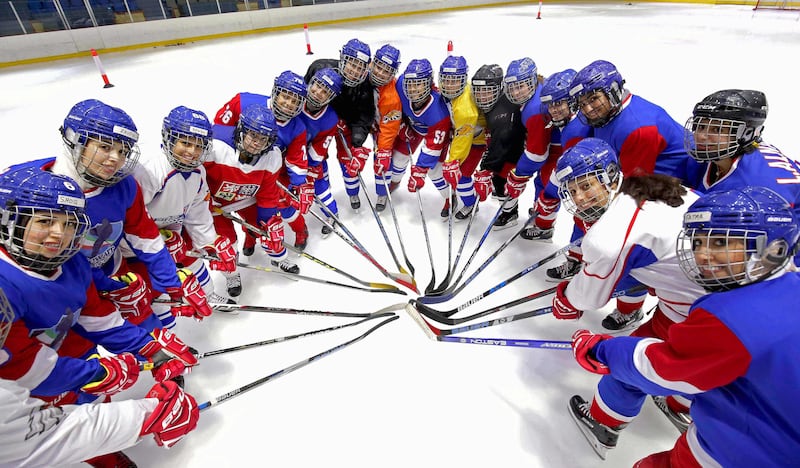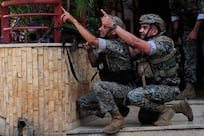"Today's struggles will only be tomorrow's warm-up." So said Zahra Lari, the 22-year-old Emirati figure skater who made history by persuading the International Skating Union to change their rules and allow hijab-wearing sportswomen to compete on equal terms. It is a message brimming with defiance and positivity as Abu Dhabi rolls out the welcome mat today for some of the world's top sportswomen in its fourth International Conference of Sports for Women.
Among the regional stars joining Lari will be Raha Moharrak, the first Saudi woman to climb Everest, Jordanian Olympic swimmer Samar Nassar and parkour trainer Amal Murad. The aim, of course, is to reach a point where we can stop talking about "world firsts" and simply celebrate these women for their sporting prowess rather than gawking at the spectacle of women competing in international arenas in hijabs.
Five years on from Lari's landmark battle with the ISU in Italy, there is an increasing drive to create more spaces for women to express themselves on a level playing field in the Middle East – and a burgeoning audience to witness it. The Fatima bint Mubarak Ladies' Open in Abu Dhabi is now a regular event on the sporting calendar while last year's under-17 Women's World Cup in Jordan marked the first time players had worn hijabs during a Fifa event. From Olympic weightlifters to fencers and squash players, Muslim sportswomen are becoming increasingly visible in a competitive arena while in the region, there are more opportunities to take up sport – a vital message for a young generation brought up in the digital age and in a region where obesity continues to be a problem.
The idea is to make participating in sports a cultural and social norm: hence, there are conference panels on behavourial change and casting Arab sportswomen as 21st-century role models. But let’s not think for a second this is an exclusively regional phenomenon. Women worldwide have been battling to be recognised as sporting equals for decades. Earlier this year, Serena Williams had to defend herself when John McEnroe claimed “if she played the men’s circuit, she’d be like 700 in the world”. Williams responded by saying men’s and women’s tennis were two separate sports. Perhaps now we can move the conversation forward from who plays better and aim for a day when playing “like a girl” is a goal all young women can dream of achieving.





